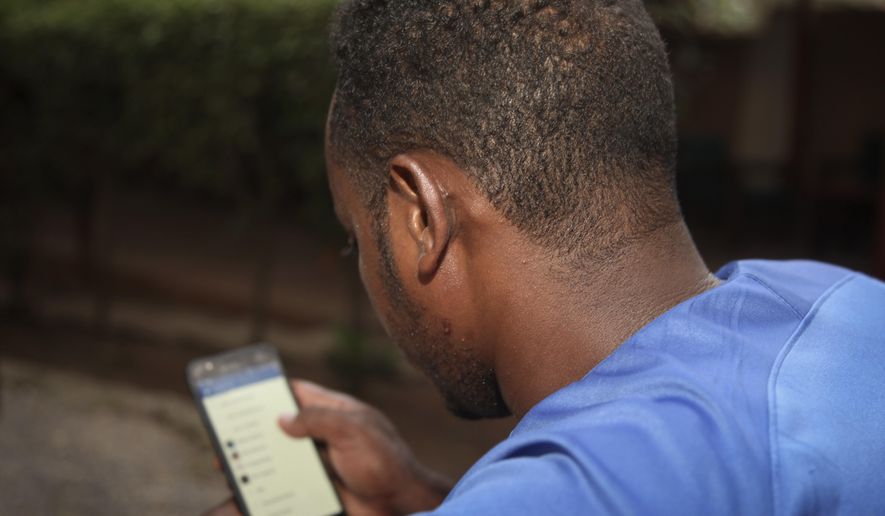Social media users in Uganda are in a pitched battle with longtime President Yoweri Museveni, who is trying to curb the spread of “fake news” and online “olugambo” — gossip — by taxing users for the right to log onto Facebook, Twitter, Instagram, WhatsApp, Skype and other media platforms.
Protests against the fee exploded into violence last week as riot police in the capital of Kampala used tear gas and bullets to disperse demonstrators.
The tax, implemented on July 1, requires social media users to pay a daily fee of 200 shillings — about 5 cents — to access social media websites, which comes on top of normal access fees.
Mr. Museveni, who has ruled since 1986, can afford the tax, but web freedom advocates estimate that 19 million low-income Ugandans have effectively lost access to Facebook, WhatsApp, Skype and other apps.
Free speech proponents say Mr. Museveni’s real intent is to muzzle critical independent media reporting.
“As we have seen around the world, online media platforms, including social media, are one of the last places journalists are able to report during government crackdowns on free expression,” Angela Quintal, Africa program coordinator for the Committee to Protect Journalists, wrote in an email.
“Uganda’s social media tax creates a significant financial barrier to what should be one of the most accessible spaces to practice journalism,” she said.
International internet freedom groups see an even more disturbing regional trend in regard to social media.
In Western democracies, public information campaigns are fighting targeted efforts to create and disseminate false news stories via social media. The effort was accelerated by the controversy of Russian hackers trying to influence and inflame debate during the 2016 presidential election campaign in the U.S. and elections in other Western countries.
At the opposite end of the spectrum, authoritarian states such as China and Russia use increasingly sophisticated screens to control content on social networks, aggressively banning virtual private networks (VPNs) that could allow access to the apps.
East African leaders have far less control over the broader internet, so the governments of Tanzania and Kenya this year have turned to massive monetary penalties to restrict online activity that they dislike. Uganda’s social media “fee” is part of a larger movement.
“Unfortunately, Uganda’s tax is also part of a yearslong trend of African governments acting to constrain journalism online,” Ms. Quintal said.
The Tanzanian regulations require bloggers to pay fees up to $920 to post content online. Kenyan lawmakers, meanwhile, have proposed a $50,000 fine and up to two years in prison for publishing “false” information online.
Activists in Uganda say their neighboring countries inspired Mr. Museveni, a flamboyant 75-year-old in his sixth term in office, to seek ways to shut down online critics.
Hilary Matfess, who has written on the radical Islamist movement Boko Haram, and Jeffrey Smith, head of the pro-democracy group Vanguard Africa, say African nations such as Tanzania, Uganda, Zimbabwe, Zambia and Zimbabwe are following in familiar footsteps in their bids to curb critical debate on the internet.
“Tanzania and Uganda are the latest nations to fall victim to a wave of internet censorship that has been inspired and exported by autocratic powers such as China and Russia, as well as totalitarian regimes like North Korea …,” they wrote recently on ForeignPolicy.com. “Across sub-Saharan Africa, free expression is being unjustly curtailed, and the internet is increasingly being used by authorities to censor and surveil citizens.”
What next?
Mr. Museveni first inquired about creating the social media tax in March when he wrote to his finance ministry, according to local reports, and warned of the “consequences of olugambo” online.
When the announcement sparked an uproar, Mr. Museveni’s allies dug in and offered justifications for the proposal. Finance Minister David Bahati and parliamentary spokesman Chris Obore argued that the tax would help Uganda pay off its growing national debt. Information Minister Frank Tumwebaze argued that Twitter, Facebook and WhatsApp were profiting from Uganda’s digital infrastructure without contributing to the construction or upkeep on the networks that support them.
But when the tax went live, the national backlash was instantaneous. A local tech firm sued the government for breaching the principle of net neutrality, claiming the fee was “passed with no public participation and hinders freedom of speech and innovation.”
The World Wide Web Foundation, the World Bank and the Alliance for Affordable Internet all published statistics arguing against the fee.
More elite, tech-savvy Ugandans reportedly have begun installing encrypted VPNs to bypass the tax, but the government is trying to block them as well.
The anger and frustration has spilled onto the streets. In Kampala on Wednesday, riot police blasted tear gas and live ammunition into the air to break up a protest of about 300 demonstrators led by popular singer and independent parliamentary member Robert Kyagulanyi, known to fans as Bobi Wine.
On Twitter, Mr. Kyagulanyi posted pictures of a chaotic street in the capital filled with protesters fending off police.
Later Wednesday, Prime Minister Ruhakana Rugunda announced that Mr. Museveni had “encouraged further discussion” and a review of the tax. That discussion is scheduled for this week.
• Dan Boylan can be reached at dboylan@washingtontimes.com.




Please read our comment policy before commenting.